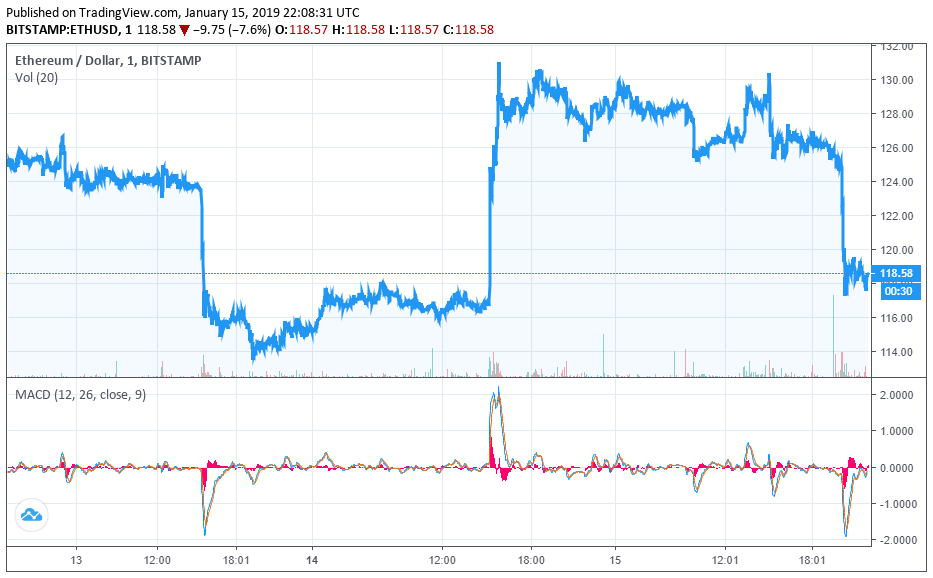Breaking: Ethereum Developers Postpone Constantinople Hard Fork, Price Plunges

Ethereum developers have delayed the long-awaited Constantinople hard fork in response to potential security vulnerabilities in one of the upgrades. | Source: Shutterstock
The core developers of Ethereum have called for a delay to the activation of Constantinople, just hours before the long-awaited hard fork was scheduled to go live on the third-largest cryptocurrency’s network.
Ethereum Hard Fork Delayed
In a statement , the Ethereum Core Developers and Ethereum Security Community said that they decided to postpone the hard fork after security researchers identified a potential vulnerability in one of the software upgrades.
“Security researchers like ChainSecurity and TrailOfBits ran (and are still running) analysis across the entire blockchain. They did not find any cases of this vulnerability in the wild. However, there is still a non-zero risk that some contracts could be affected,” the statement read.
Because the risk is non-zero and the amount of time required to determine the risk with confidence is longer the amount of time available before the planned Constantinople upgrade, a decision was reached to postpone the fork out of an abundance of caution.
According to the statement, that potential vulnerability stemmed from EIP-1283 , which introduces a cheaper gas cost for SSTORE operations. Researchers believe that it’s possible that had EIP-1283 been activated, certain smart contracts that are already running on Ethereum could have become vulnerable to reentrancy attacks.
ChainSecurity has published a more thorough explanation of the potential vulnerability.
Crypto Exchanges, Miners Must Upgrade to Emergency Software

Since the hard fork has been delayed, cryptocurrency exchanges, miners, and other node operators must either upgrade to emergency versions of their Ethereum software clients or downgrade to the previous pre-fork release.
Failing to upgrade a node will cause you to become disconnected from the main Ethereum network since the Constantinople fork software is not compatible with previous versions.
However, most Ethereum users — i.e., those who do not run full nodes — do not need to take any action, and wallets remain secure. This is important to note because it’s likely that scammers will seek to take advantage of the situation to swindle crypto holders out of their funds.
No New Fork Date Announced
Prior to the abrupt delay, the Ethereum community had been in good spirits about the impending activation of Constantionple, which will implement a number of upgrades into the cryptocurrency’s protocol.
In addition to preparing the network to better scale to mainstream usage, the fork will permanently reduce the Ethereum block reward by 33 percent, to 2 ether from 3 ether.
The fork had been scheduled to go live at block 7080000 on Jan. 16, just hours from now. The last block processed by the network as of the time of writing was 7072694.
No new fork date has yet been announced.
Ethereum Price Makes Sharp Decline

The ethereum price — which had traded up in advance of the fork — plunged following the announcement, declining as low as $116 on Bitstamp from an intraday high of $130.
This story is developing. Please check back for updates.
Featured Image from Shutterstock. Price Charts from TradingView .